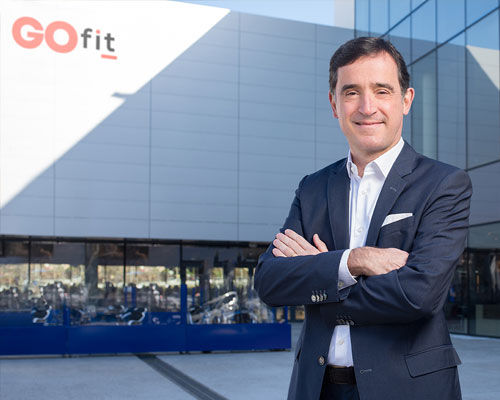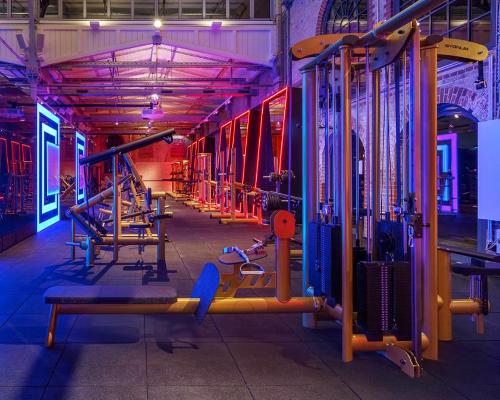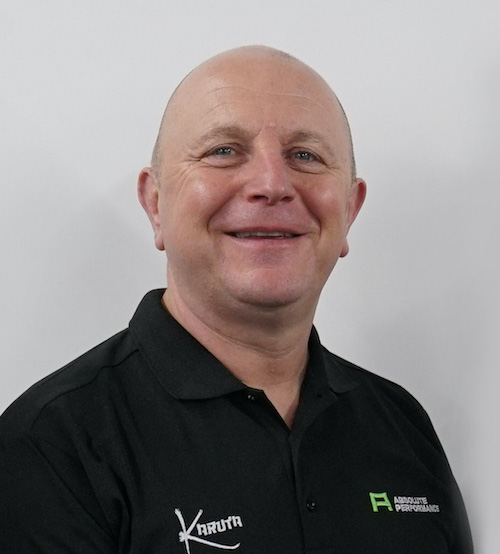people
Yield management: Revenue booster
Demand-based pricing, appointing a revenue manager, and promoting ‘spare space’. Our panel of experts talk to Kate Cracknell about improving yield in health clubs
A hardcore of morning exercisers, a lunchtime influx and then the predictable evening rush hour. Sound like a familiar pattern of attendance at your gym? Meanwhile, facilities lie all but empty during off-peak daytime hours – but rent, utilities and staff costs still need to be paid.
True, new offerings such as virtual group exercise allow for studios to be made use of off-peak, when instructor-led classes aren’t cost-effective. And there are some operators who offer things like senior sessions during quieter times, or who open their doors to schools so kids can use their facilities for PE lessons. But surely there’s more the fitness sector could be doing to drive usage of its facilities during quieter times, and with it extract maximum value from them?
Other sectors – notably the airlines – have strong yield management models, making sure as many seats as possible are filled on each flight. But, while the fitness sector is finally seeing some innovation in this area thanks to newcomers like Dibs – founded in New York in June 2015, which is helping studios fill classes and boost revenue via dynamic pricing – there’s still a long way to go for health club operators.
We ask the experts for their advice on how to improve yield management in the health and fitness sector.
Neil King,
MD,
1Life, UK

Variable pricing is one of the areas in which the leisure industry – including the fitness sector – currently lags behind other comparable sectors involved in the ‘space selling game’.
Once a time slot has gone – be it in a gym, swimming pool, sports hall, hotel room or cinema seat – you can never sell that space again. The moment is over and it’s gone forever. So why doesn’t our sector embrace the concept of variable pricing, given that one of the things that we all have is empty space?
We don’t need to worry about our peak time usage – this sells itself – but when faced with a daily utilisation figure of approximately 35 per cent in a four-badminton-court sports hall, there are clearly opportunities.
Attempts have been made with the introduction of off-peak pricing and concessionary pricing, but these were all solutions for the pre-digital age. Online bookings, social media and electronic ticketing all provide new opportunities to do things differently and more effectively. Via push notifications, we can now inform customers of when and where we have ‘spare space’. Add to that a variable pricing model, either real-time or via advanced discounted booking rates, and we could create a very different business – more flexible, higher occupancy, more commercial and one that’s really designed to encourage more people to be more active more often.
From an operator perspective, several forward-thinking companies would already like to sell my space for me, but how little thought and effort might it take for me to do this myself?
Variable pricing is therefore something 1Life is considering at the moment; we’re looking at ways we can be more innovative when it comes to the pricing of our products and services. If we get it right, it should hit two buttons: our commercial objectives and our social objectives.
“Once a time slot has gone – be it in a gym, a swimming pool, a sports hall, a hotel room or a cinema seat – you can never sell that space again” - Neil King
Alicia Thomas,
CEO & co-founder,
Dibs, US

Group fitness is the fastest-growing segment of the fitness industry, and yet over 40 per cent of group exercise classes go unfilled, leaving millions in unrealised revenue.
Mature industries like travel and retail have multiple channels and vehicles to offer variable discounts. By contrast, group fitness has subsisted on all-inclusive memberships or static pricing, combined with blunt discount platforms that devalue the brand – none of which accurately reflects the true demand.
For example, a Monday 7.30am group cycling class very likely has a much higher demand than the Thursday 2.30pm cycling class – yet the price is a constant.
The travel industry was the first to experiment with yield management in the 1970s, and it quickly became adopted industry-wide. More recently, the MLB applied yield management to sporting events, resulting in a revenue increase of 30 per cent.
With the fitness sector now shifting away from its traditional territory of monthly memberships, thanks to the emergence of boutique studios offering à la carte fitness classes, our model is becoming increasingly relevant and showing how yield management can also be applied to fitness.
With fitness studios, Dibs uses its proprietary algorithm to increase average revenue paid per seat by 30–50 per cent. Studios simply set the minimum and maximum prices they are willing to offer on classes, and our algorithm does the rest. The algorithm observes demand factors such as location, day of week, time of day, instructor, class type, historical fill rate and seasonality to determine the optimal price. As the class books out, the price of the class generally scales upwards so it incentivises users to book earlier to ensure the best spot and price.
As we expand our network of studio partners, we expect to see studios able to fill their classes to a minimum of 60–70 per cent utilisation – but more importantly, the studio will see a topline revenue lift of 30 per cent or more.
“With fitness studios, Dibs uses its algorithm to increase average revenue paid per seat by 30–50 per cent” - Alicia Thomas

Dave Courteen ,
MD,
Mosaic Spa & Health Clubs, UK

The critical factor within yield management is to maximise the revenue from a limited resource. Within our spas, this is therefore all about maximising the revenue we can generate from the therapist hours we have scheduled and the number of treatments we have available.
For health clubs, I would suggest the key is to yield the maximum revenue per member. There’s always a temptation to discount membership – especially with the significant growth of the budget gyms who, by definition, compete on price.
But while discounts may be a necessary part of the marketing mix, it’s important to ensure that over-eager sales staff aren’t focused purely on piling people in, but rather on signing up members who are paying the published price. A real focus on ‘value added’ membership, rather than simply a cheaper price, needs to be at the heart of any yield management strategy in the health club.
It’s also worth looking at the traditional industry practice of offering an off-peak membership at a reduced rate. While it’s recognised that this helps attract members into the club during quiet times, it could equally be argued that these off-peak members get an enhanced experience when using the facilities, with less waiting time for equipment and greater attention from staff – yet they pay less for it. Over the last few years, we’ve managed to reduce the gap between the peak and off-peak memberships at our Mosaic Clubs by putting up our off-peak prices by a greater amount than our peak.
New developments in technology also mean an opportunity exists for the health club to increase its yield by extending its services beyond the walls of its facility. Support for programmes and activities taken outside the health club by members, and monitored through a variety of wearables and fitness apps, not only allows the club to improve member retention, but also allows for greater yield management by charging for a complete wellness management service.
“For health clubs, I would suggest the key is to yield the maximum revenue per member” - Dave Courteen

Anne Hawkins,
Executive vice president,,
STR, US

Every business is perpetually confronted with a key question: what is the price that should be offered to a customer depending on where, when and how the product/service is sold?
STR has witnessed the hotel industry respond to this question with increasingly sophisticated yield management practices.
Today, most hotels have a dedicated role – the revenue manager – whose primary job is to maximise yield for the property. The revenue manager must deal with numerous variables to set pricing that maximises yield: for example, how to price weekends versus weekdays; how to price transient/leisure travellers versus group/business travellers; how to price peak periods (eg New Year’s Eve) versus times of low demand; and how to think about direct bookings versus reservations made through a third party, where the hotel loses some margin.
Similar to hotels, health clubs deal with periods of peak demand and low demand. On a typical weekday, clubs tend to have peak periods in the morning and evening when workers aren’t at the office, as well as during lunch. A club might be somewhat idle during off-peak weekday hours. The opportunity exists for clubs to adopt yield management to shift demand to off-peak hours, which may have the added benefit of increasing customer satisfaction thanks to the quieter environment and lower off-peak prices.
The time might have come for health club operators to invest in revenue managers in the same way as hotels.
“Most hotels have a dedicated role – the revenue manager – whose primary job is to maximise yield for the property” - Anne Hawkins

Tim Baker,
Chair,
Touchstone Partners, UK

Yield management – or price surging, as the modern lingo has it – is nothing new. It first came to my attention with the launch of airline easyJet, which is now celebrating 20 years of operation. This article explains how airlines do it: www.health-club.co.uk/airlines
Anyone who ever travels by rail is familiar with the core principle (peak, off-peak, advance tickets etc) and on the face of it, it seems odd that Uber is attracting so much negative attention for using a price surge algorithm. But taxi rides are more likely to be distress purchase items, and applying cold economic principles when emotions may be running high inevitably attracts accusations of exploitation, cold-heartedness and cynicism.
In other worlds, however, price surging doesn’t attract the same problems. It’s not just airlines and trains – hotels, holiday resorts and some leisure attractions all use price surging to manage a finite resource, so it doesn’t break at peak times and empty space is (hopefully) filled where there’s spare capacity. Guests understand this. So why wouldn’t gym members?
Indeed, it offers an opportunity to provide a better service in a more relaxed environment, and health clubs wouldn’t need the same complexity of algorithm used by the airlines and Uber.
However, the different price levels must be carefully considered. Explain that you’re providing a better service in a more relaxed environment for a carefully considered additional price. Get the ‘better service’ mix right and tell people about it: service items to shout about could include easier access to equipment and/or PTs, dedicated lockers, free use of towels and free use of usually paid-for items. ?
“Price surging allows clubs to provide a better service in a more relaxed environment” - Tim Baker





































































